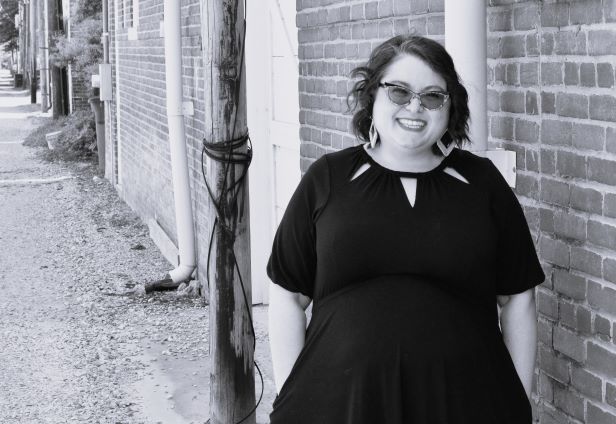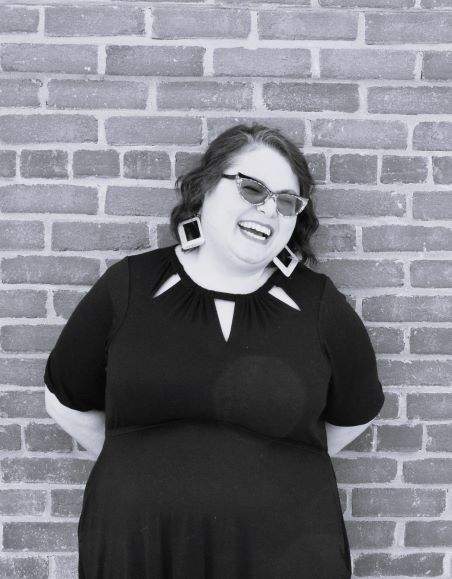I was born in New Orleans, LA with unclear parentage, adopted by New Orleans' Catholics, and educated by nuns for a significant portion of my formative teenage years. After a brief disastrous stint as a Russian and International Law major, I switched to English literature, and never looked back.
I graduated from undergraduate, received a Master's and a Ph.D. in 19th-century literature, and began working as a tenure-track (now tenured) professor at a wonderful school in the Midwest.
When I stood in London’s St. Pancras Station for the first time, I marveled at how Victorian it all was. This, I realized, was where my beloved Victorians had walked, shopped, caught the train, loved and lived. This connection between dusty history and the people who lived it is instrumental to my personal and professional philosophy of teaching, reading, and writing. As a professor, I strive to make the nineteenth century alive for my students. I am a feminist new historicist critic, which means that my work looks at how literature is influenced by history and culture. I am most interested in the idea of the domestic everyday, how seemingly insignificant items—dresses, recipes, shawls—and seemingly insignificant people—girls, governesses, fashionable women—can shape a nation and change an empire.
I did not realize it, but the massive rewriting of my first novel, Becoming, was starting to take shape.
In the third grade, I wrote my first full-length story of a girl who contracted “Werewolf-itis” (spoiler alert: she dies), and can assure you that every student riding home on the bus that day was in awe of my talents with the written word. I continued experimenting in creative writing throughout high school, college, and graduate school, mostly poetry and short stories, but all of my publications or recognitions for creative writing have been at the local or university setting. My interests in reading and writing aligned then and now, so when I wrote the first draft of my novel Becoming in 2003, I was not surprised to see that it had a decidedly science fiction leaning.
I was, however, surprised to find it was terrible. My training as a literary critic forced me to acknowledge the low quality of my first draft, and the second, and the third. I cast it aside, humbled, and immediately began working on another novel, March Madness, a mystery. Having learned my lesson, I revised (and revised, and revised), sent it to readers, and listened to criticism and advice. I shopped March Madness around to agents with positive comments, but ultimately, no contracts.
I continued to write various projects—sequels in the March Madness series, a superhero novel, a novel about World War III—but I abandoned creative writing for a few years in order to focus on my dissertation. In 2009, however, I opened my Becoming folder again. The first version had been set in contemporary America, and it still wasn’t working. My husband, a creative writer holding a Master’s of Fine Arts in poetry, asked me a very simple question: why are none of your projects set in the Victorian era? It felt too much like work, I said. That’s my day job, I said. He told me to try it out anyway, to rewrite the first chapter and see how it would change.
So I did, and realized that all of my knowledge of the Victorian era, its literature, and its people could come together in this new version of Becoming. Instead of a contemporary supernatural fantasy, the novel could be more successful as historical science fiction influenced by Steampunk, Clockwork, and nineteenth-century literature. Alexandra was rewritten as a seemingly insignificant governess with the power to topple empires, and Nicholas as a lower-class guttersnipe from Whitechapel with the power to change wood to steel just by the touch of his bare hand. How frightening would such people be, I wondered, to beings born with all the rights and privileges of the gods?
The same, it seems, as some educated and determined governesses and guttersnipes were to the upper-class Victorians with whom they lived.
Becoming and March Madness are finished, with March Madness published on my blog. Look on my writing page to see short stories set in the Becoming universe.
The Festival of Air and Light is finished and being shopped.
Such a Pretty Face is finished and on hold.
Follow You into the Dark is finished and on hold.
The Last of the Quarter is finished and being shopped.
I am represented by Bob Mecoy, of Creative Book Services.
Currently, I live in Southern Indiana with my poet-husband, two amazing dogs (Zoe Pryde and Ripley Fisher--Harley Quinn crossed the rainbow bridge in December 2019 and Moxie Rocket crossed the rainbow bridge in April 2024), and my collection of octopode paraphernalia.
Find me on Instagram @amylmontz.
Follow my blog at Wordpress.
Proudly powered by Weebly

